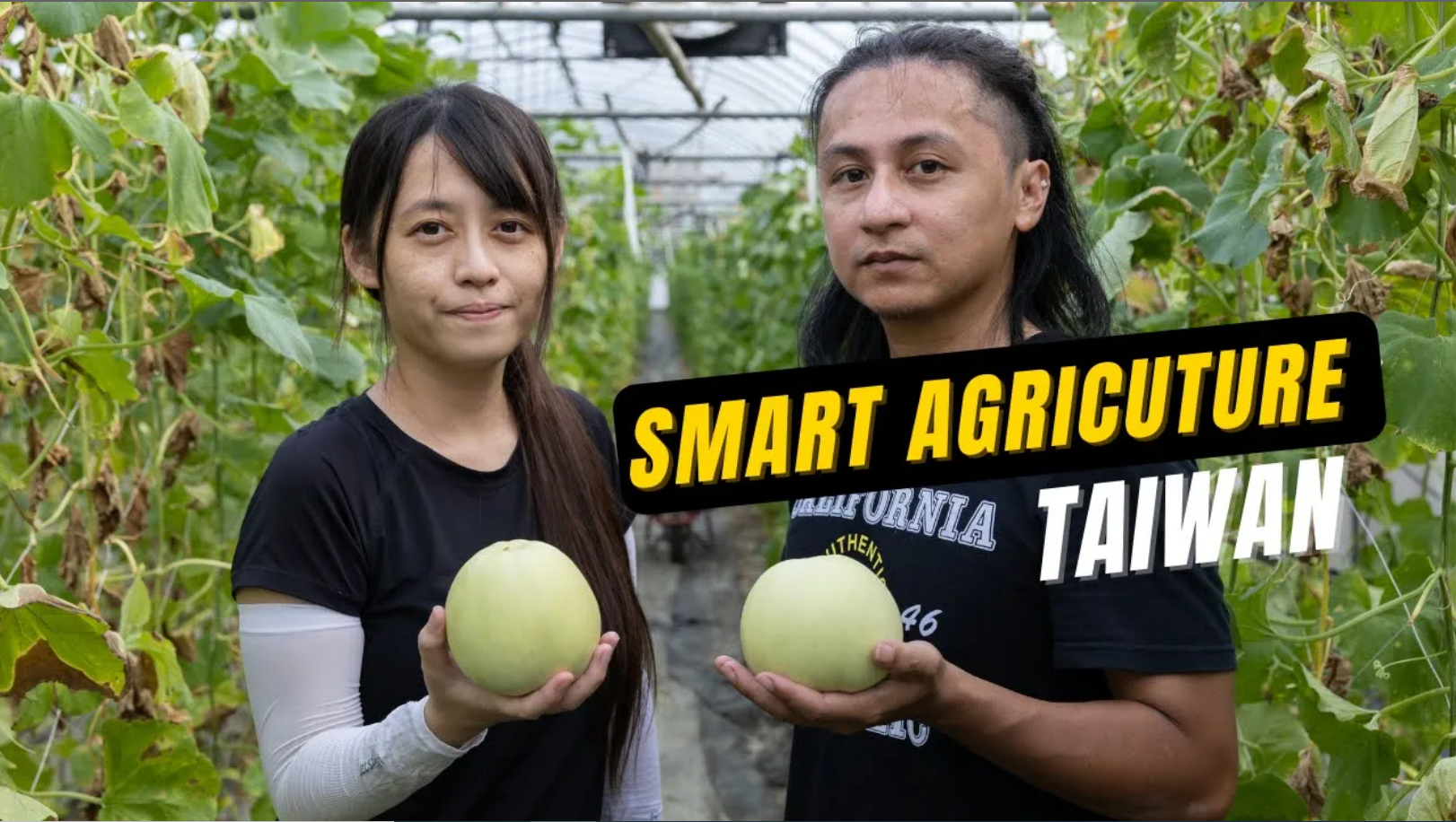Taiwan harnesses smart agriculture to promote digital equality for farmers
 |
Across Taiwan, farmers are feeling the effects of climate change.
Higher temperatures lead to an increased crop respiration rate and evapotranspiration, higher pest infestations, a shift in weed flora, and reduced crop duration. In this context, Taiwan has successfully integrated agri-tech to make farmers more resilient and to fuel high-quality agricultural development and shared prosperity.
Jiunn Shiow Lin, director of the Information Technologies Industries Division at the IDB under the Ministry of Economic Affairs said, “Taiwan’s agriculture industry is undergoing a digital transformation. With the IoT, AI, and big data, local agri-tech innovations are empowering farmers to do more work with less labour and time, reducing the cost and environmental impact of pesticides and ensuring healthier food for all.”
Taiwan’s fisheries have been negatively impacted by the extreme weather patterns caused by climate change. However, Quadlink Technology Inc. has developed IoT aquaculture systems that support the development of small-scale aquacultural production systems in coastal and inland waters.
Using sensors and big data, fisheries such as Yung An Fish Farm have optimised aquaculture production and distribution to keep breeding conditions stable and manage concerning abnormalities.
In Pingtung, Taiwan’s agricultural hub, dragon fruit farmers have addressed labour shortages with advanced technologies from Dragon Digital Farm Co.
With a harvest period of seven months, dragon fruit requires consistent lighting throughout the seasons to ensure year-round production, stable prices, and high margins. Thanks to an innovative system featuring IoT, big data, digital barcodes, and AI, farmers have reduced labour demand, decentralised the production season, and are able to better identify the prime harvesting period.
Pingtung’s large-scale banana farmers have also consistently struggled with diseases that have caused a decline in production. With vast areas of land and few employees, farmers were unable to manually patrol the land and identify warning signs of disease.
Using precise digital applications, Yi Lung Agricultural Co. is now able to monitor plants across the farm and act quickly to prevent the spread of diseases in current and future agricultural cycles.
Further north in Chiayi, melon farmers are moving towards a smarter, safer agricultural model for their melon farming – a process that typically includes harmful chemical pesticides to ward off disease.
Thanks to Chunghwa Telecom’s Comprehensive Smart Agriculture Solution, farmers can use sensors, AI, and big data to collect key environmental parameters and advise on crop rotation, optimal planting times, and soil management to mitigate pests and disease without noxious chemicals.
As climate change continues and the global population keeps climbing, Taiwan’s agri-tech innovations ensure equality for farmers and contribute to sustainable global development.
Taiwan’s agricultural systems have been exported to other countries including Malaysia and Indonesia, bringing digitalisation to even more farmers and improving global access to high-quality food.
Looking ahead, the nation will continue optimising its farming techniques by using high-precision technology as it commits to the Agriculture 4.0 movement.
The IDB has been running the Smart City Taiwan project since 2018. The project utilises smart technologies, including IoT, big data, and AI, to construct cities and towns where people, companies, and governments exist harmoniously and drive innovation.
At present, the project covers six major aspects of civilian life including food, healthcare, housing, transportation, education, and entertainment, which are all managed with sound governance.
What the stars mean:
★ Poor ★ ★ Promising ★★★ Good ★★★★ Very good ★★★★★ Exceptional
Related Contents
Latest News
More News
- France supports Vietnam’s growing role in international arena: French Ambassador (January 25, 2026 | 10:11)
- Foreign leaders extend congratulations to Party General Secretary To Lam (January 25, 2026 | 10:01)
- Russian President congratulates Vietnamese Party leader during phone talks (January 25, 2026 | 09:58)
- Worldwide congratulations underscore confidence in Vietnam’s 14th Party Congress (January 23, 2026 | 09:02)
- Political parties, organisations, int’l friends send congratulations to 14th National Party Congress (January 22, 2026 | 09:33)
- 14th National Party Congress: Japanese media highlight Vietnam’s growth targets (January 21, 2026 | 09:46)
- 14th National Party Congress: Driving force for Vietnam to continue renewal, innovation, breakthroughs (January 21, 2026 | 09:42)
- Vietnam remains spiritual support for progressive forces: Colombian party leader (January 21, 2026 | 08:00)
- Int'l media provides large coverage of 14th National Party Congress's first working day (January 20, 2026 | 09:09)
- Vietnamese firms win top honours at ASEAN Digital Awards (January 16, 2026 | 16:45)

 Tag:
Tag:


























 Mobile Version
Mobile Version